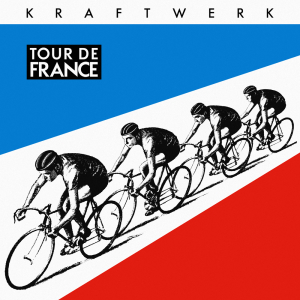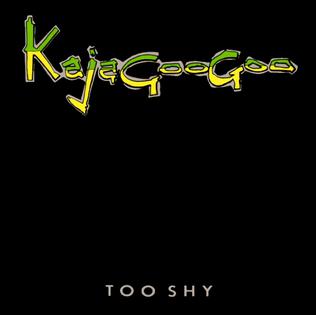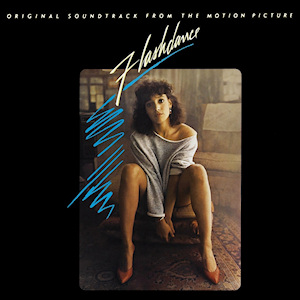
"Come On Eileen" is a song by English group Dexys Midnight Runners, released in the United Kingdom on 25 June 1982 as a single from their album Too-Rye-Ay. It reached number one in the United States, and was their second number one hit in the UK, following 1980's "Geno". The song was written by Kevin Rowland, Jim Paterson and Billy Adams, and was produced by Clive Langer and Alan Winstanley.

"Every Breath You Take" is a song by the English rock band the Police from their album Synchronicity (1983). Written by Sting, the single was the biggest US and UK hit of 1983, topping the Billboard Hot 100 singles chart for eight weeks, and the UK Singles Chart for four weeks. It also topped the Billboard Top Tracks chart for nine weeks.

Christine Marie Evert, known as Chris Evert Lloyd from 1979 to 1987, is a retired American World No. 1 tennis player. She won 18 Grand Slam singles championships and three doubles titles. She was the year-ending World No. 1 singles player in 1974, 1975, 1976, 1977, 1978, 1980, and 1981. Overall, Evert won 157 singles championships and 32 doubles titles.

"Total Eclipse of the Heart" is a song recorded by Welsh singer Bonnie Tyler. It was written and produced by Jim Steinman, and released on Tyler's fifth studio album, Faster Than the Speed of Night (1983). The song was released as a single by Columbia Records on 11 February 1983 in the United Kingdom and on 31 May 1983 in the United States.

"Moonlight Shadow" is a song written and performed by English multi-instrumentalist Mike Oldfield, released as a single in May 1983 by Virgin Records, and included in the album Crises of the same year. The vocals were performed by Scottish vocalist Maggie Reilly, who had collaborated with Mike Oldfield since 1980. It is Oldfield's most successful single, reaching number one on a number of charts around Europe.

"Flashdance... What a Feeling" is a song from the 1983 film Flashdance, written by Italian composer Giorgio Moroder (music), Keith Forsey and Irene Cara (lyrics), and performed by Cara.

"Let's Dance" is a song recorded by English singer David Bowie from his album of the same name, Let's Dance (1983). The song was written by Bowie and produced by Nile Rodgers. It was released as the album's first single in 1983 and went on to become one of his biggest-selling tracks. Stevie Ray Vaughan played the guitar solo at the end of the song.

American singer Madonna has released 85 singles and 20 promotional singles and charted with 13 other songs. In 1982, she signed a contract with Sire Records and Warner Bros. Records, and released her first two singles before launching her eponymous debut album. Her first entry on the US Billboard Hot 100 was "Holiday" (1983), which peaked at number 16. The following year, Madonna released "Like a Virgin", which reached number one in Australia, Canada and the US; in the latter it spent six weeks atop the chart. The album Like a Virgin spawned three other top five singles: "Material Girl", "Angel", and "Dress You Up", with "Angel" also peaking at number one in Australia. In 1985, Madonna released her second US number-one single, "Crazy for You", and her first UK number-one single, "Into the Groove", both from feature film soundtracks. "Into the Groove" also topped the charts in Italy, Spain and Australia. The following year, her third studio album True Blue gave her three number-one singles: "Live to Tell", "Papa Don't Preach", and "Open Your Heart". Two other singles from the album, "True Blue" and "La Isla Bonita", were top-five hits. In 1987, she scored another number-one single with "Who's That Girl". The title track from Madonna's fourth studio album, Like a Prayer (1989), was her seventh single to top the Hot 100 chart, making her the female artist with the most number-one singles in the 1980s.

"Tour de France" is a song by Kraftwerk. It was first issued in June 1983, peaking at number 22 in the United Kingdom singles chart. It is notable for the use of sampled voices and mechanical sounds associated with cycling that were used to supplement a simple electro-percussion pattern – an approach Kraftwerk had used on earlier tracks such as "Metal on Metal" and "Numbers". The music is credited to Ralf Hütter, Florian Schneider and Karl Bartos; the lyrics are credited to Hütter and Maxime Schmitt, a French label associate of the band. The melody appears to quote a fragment of the opening section of Paul Hindemith's “Sonata for Flute and Piano”.

"Sweet Dreams " is a song written and performed by the British new wave music duo Eurythmics. The song is the title track of their album of the same name and was released as the fourth and final single from the album in early 1983. The song became their breakthrough hit, establishing the duo worldwide. Its music video helped to propel the song to number 2 on the UK Singles Chart and number 1 on the US Billboard Hot 100. It was the first single released by Eurythmics in the US.

"Karma Chameleon" is a song by English band Culture Club, featured on the group's 1983 album Colour by Numbers. The single spent three weeks at number one on the US Billboard Hot 100 in early 1984, becoming the group's biggest hit and only US number-one single among their many top 10 hits. The sleeve features work from the photographer David Levine.

"Too Shy" is a song written and recorded by English band Kajagoogoo, released in 1983. The first single from their debut album White Feathers, the song was an immediate hit and reached number one on the UK Singles Chart for two weeks. It was also very successful in other European countries and Japan, spending five weeks at number one in Germany, also reaching number one in Belgium and Ireland, as well as reaching number two in France and Switzerland, and number four in Sweden, Austria and the Netherlands.

"Words" is a 1981 song by F. R. David. The song was originally released only in France and Monaco in the winter of 1981; later it was released in the rest of Europe. In 1983, it finally was released in America and the UK. It was a huge European hit, peaking at number one in Germany, Switzerland, Sweden, Austria and Norway. In spring of 1983, it peaked at number two on the British charts. It also went to number one in South Africa in late 1982 and spent 25 weeks on the charts. In Australia, the single peaked at number 12 but spent 41 weeks on the Top 100 in two chart runs throughout 1983 and early 1984.

"Maniac" is a song performed by Michael Sembello. The song was used in the 1983 film Flashdance.

Flashdance: Original Soundtrack from the Motion Picture is the soundtrack to the 1983 American musical and romance film Flashdance, produced by Don Simpson and Jerry Bruckheimer and starring Jennifer Beals and Michael Nouri. It has sold more than 20 million copies worldwide, making it one of the best selling albums of all time. The film is set in Pittsburgh, Pennsylvania and follows Alex, a welder and exotic dancer and her dreams of becoming a professional ballet dancer. In 1984, the album received a Grammy nomination for Album of the Year and won for Best Album of Original Score Written for a Motion Picture or a Television Special.

"Beat It" is a song written and performed by American recording artist Michael Jackson from his sixth studio album, Thriller (1982). It was produced by Jackson and Quincy Jones. Following the successful Thriller singles "The Girl Is Mine" and "Billie Jean", "Beat It" was released on February 14, 1983 as the album's third single. The song is also notable for its music video, which features Jackson bringing two gangsters together through the power of music and dance, and for Eddie Van Halen's guitar solo.

"Come Back and Stay" is a song that was first recorded in 1981 by its writer Jack Lee. In 1983, singer Paul Young released his version as a single from his album, No Parlez, and it became an international hit.

"I'll Be Missing You" is a song recorded by American rapper Puff Daddy and American singer Faith Evans, featuring R&B group 112, in memory of fellow Bad Boy Records artist Christopher "The Notorious B.I.G." Wallace, who was murdered on March 9, 1997.


















